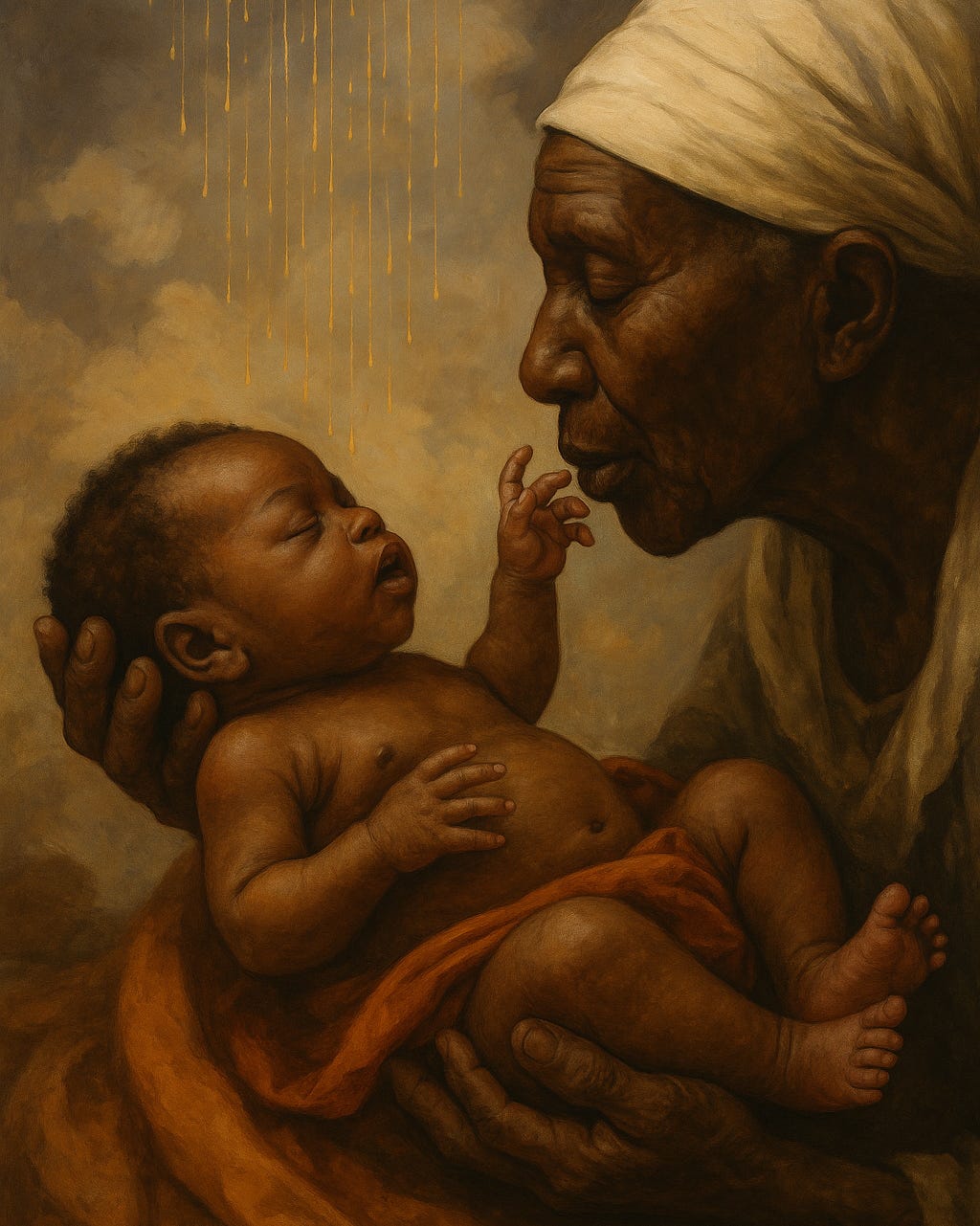When Names Fall From the Sky
The Invention of the Shona - Part 1
There is something sacred about being named by those who love you.
In most African traditions, names are whispered into the ear of a newborn not merely as labels but as lifelines — to ancestors, to stories, to unfulfilled prayers and unspoken hopes. A name is a reminder that you arrived as someone. Before the first cry, before the first breath, there was already meaning waiting for you. Now imagine waking up one day to find that your name, that ancient tether to memory, has been replaced by a word from a filing cabinet in London. A word not born from your lineage but assigned by convenience. Shona.
This is not a conspiracy theory, and before we proceed with the naming of the Shona, a bit of background. As a child, it never made sense growing up in a country whose president’s first and middle names were both English. “Robert Gabriel” (may his soul rest in peace). But what poor African family would use a foreign tongue in naming their child in 1924? My childhood question never got a satisfactory answer, so I’ve always carried this nagging thing at the back of my head. What really happened to them? Even my parents had English names, and talking about our parents first names was taboo making it another source of curiosity. Lately, I’m realising that our parents did not like their government names, because they were imposed. They were replacements. They were unnatural. To give context, imagine you are 16 and you go to get your Identity Card, the person on the other side of the counter asks “What’s your name?” you say “Kufahakurotwe”, they go “What does that mean?" you reply, “It means you don’t dream of death, literally” but to be more precise “Death is the way of life.” The respond “No.” They look through a list and say, “You are now called Joshua.” and if they are courteous, they’ll give you the list, so you select one for yourself. What is curtesy when you don’t have an option?
The word Shona feels old, doesn’t it? It hums with ancient gravity. You might even picture some bearded elder from time immemorial carving it into granite ruins. But Shona, as a collective identity, is younger than the first World Cup. Younger than Zimbabwe itself. It is, quite literally, a name that fell from the sky, or more accurately, from the top of a colonial desk, pressed between administrative necessity and missionary zeal.
This is not an insult. It is an invitation, to remember more deeply than we were taught. Because “Shona” is not who we have always been. It is who we were once called. And then, over time, who we began to believe we were.
But belief is not the same as origin.
In The Thinking Savannah, we often say: The roots remember what the leaves forget. To reclaim ourselves, we must ask the soil, not the scribe. We must travel downward into memory, not forward into myth. This journey does not begin with a war or a kingdom, but with a question — Who named you? And did they know you?
To be clear, this is not a rejection of “Shona.” It is a reckoning. Because if we are going to wear a name, let it at least be tailored to fit the fullness of who we are, not a colonial hand-me-down patched together for bureaucratic tidiness. Let’s be honest: it’s a little absurd that one term — Shona — has come to contain over 23+ dialects, a dozen historical polities, sacred sites, totems, praise poetry, drum languages, river lore, and ancestral codes. That’s like calling all Europeans “Latins” and expecting them to nod in agreement. And asked to define it, none of us truly can, yet we have to give it meaning. The Europeans I know take to the streets just for a misspelt name.
And yet, we did nod. We still nod. Because sometimes survival means answering to the name that power gives you, even when it isn't yours.
Still, a name is never just a name. It is a claim.
So, let us trace the fingerprints on this name. Let us peel back the linguistic lacquer, the missionary polish, and the bureaucratic ink. Let us go back — not in nostalgia, but in knowledge. Let us remember, with humour and humility, how it came to be that whole generations would one day stand proudly and declare, “I am Shona” — unaware that the ancestors in their dreams never spoke the word.
Not even once.


